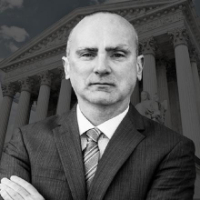Milford DUI-DWI Lawyer, Texas
Sponsored Law Firm
-
 x
x

Click For More Info:
-
Noemi A. Collie, P.C.
1012 N. Bishop Ave. Dallas, TX 75208» view mapCriminal Defense Law Standing Up For Your Rights
We are the region's leading law firm, and have been for more than 20 years. Don't face a criminal charge alone.
800-930-8960
Gregory J. Prickett
✓ VERIFIEDDUI-DWI, Family Law, Criminal, Federal Trial Practice
Greg spent 20 years in the military, both Army and Air Force, and retired as a captain in the reserves in 1999. He also served as a police officer in ... (more)
Craig Allen Dameron
Criminal, DUI-DWI, Felony, Misdemeanor
Fort Worth, TX Criminal Defense Attorney
With over 15 years of experience representing clients charged with DWI and other criminal charges in Tarrant County and throughout the Dallas-Fort Wor... (more)
Don T. Hase
DUI-DWI, Federal Appellate Practice, Domestic Violence & Neglect, , Criminal
Status: In Good Standing
FREE CONSULTATION
CONTACTJoseph R. Gallo
Grand Jury Proceedings, Felony, DUI-DWI, Criminal
Status: In Good Standing Licensed: 28 Years
Robert L Ward
DUI-DWI, Family Law, Personal Injury, , Mass Torts
Status: In Good Standing Licensed: 27 Years
 Noemi Collie Dallas, TX
Noemi Collie Dallas, TX Practice AreasExpertise
Practice AreasExpertise


